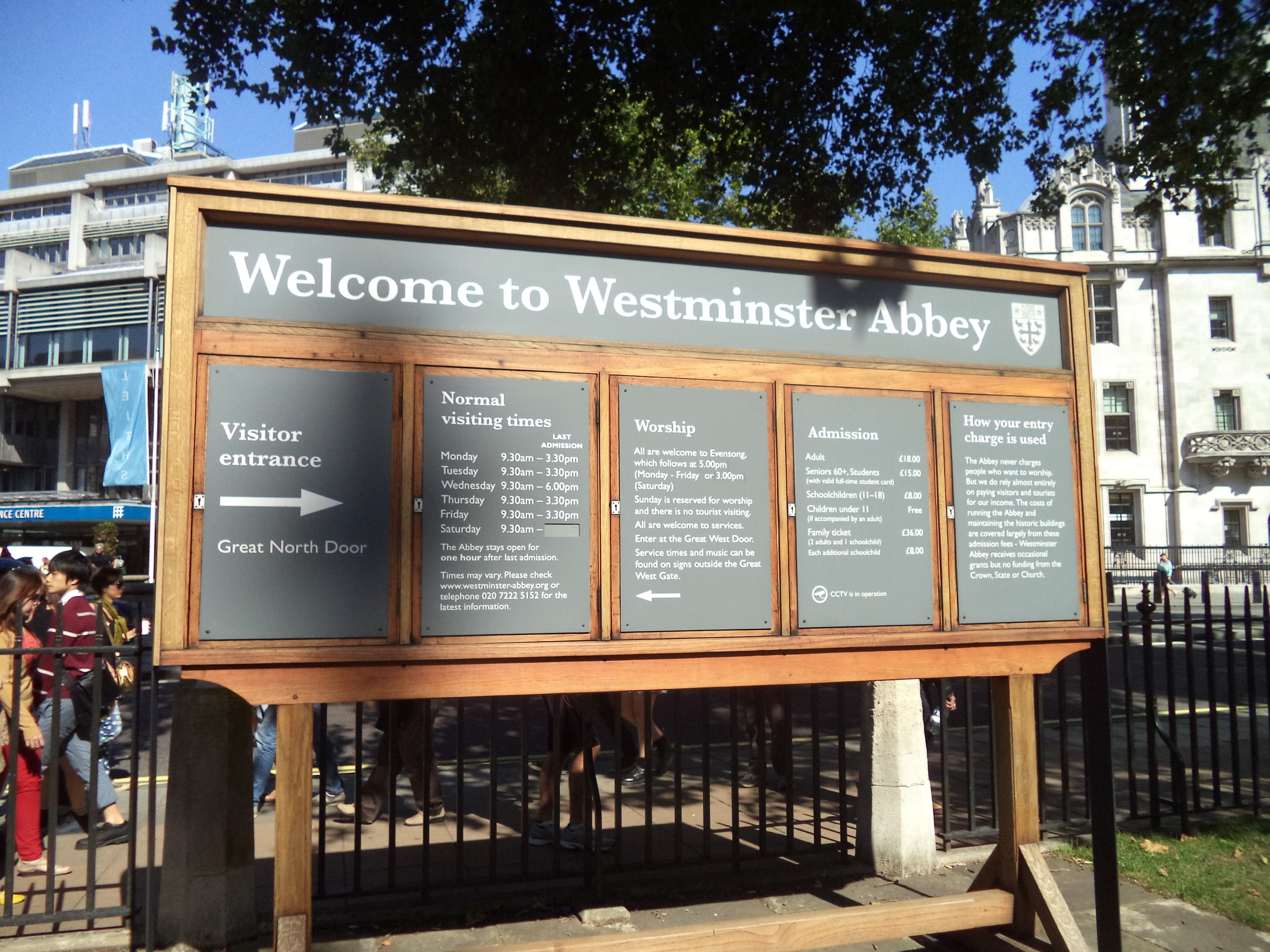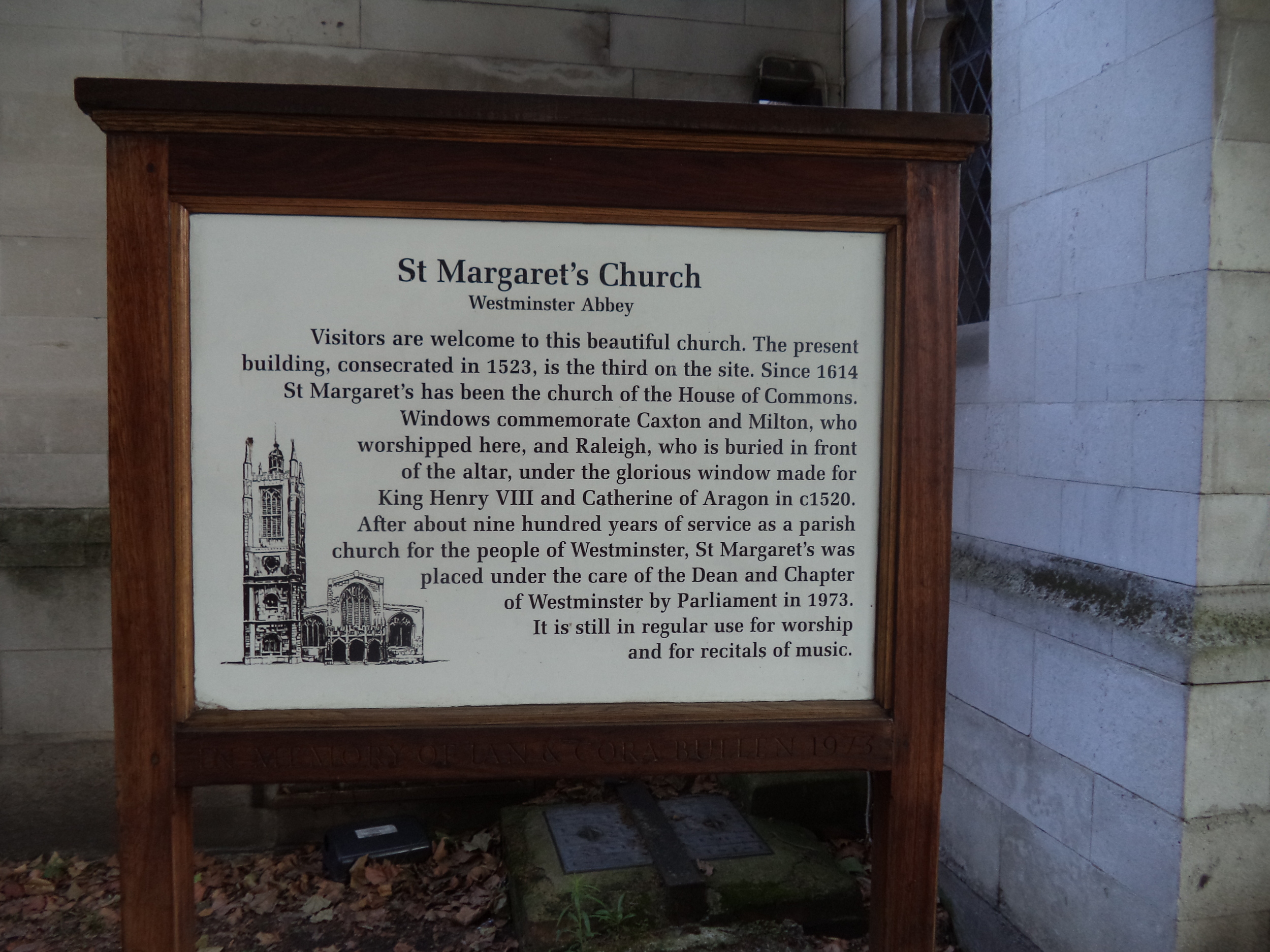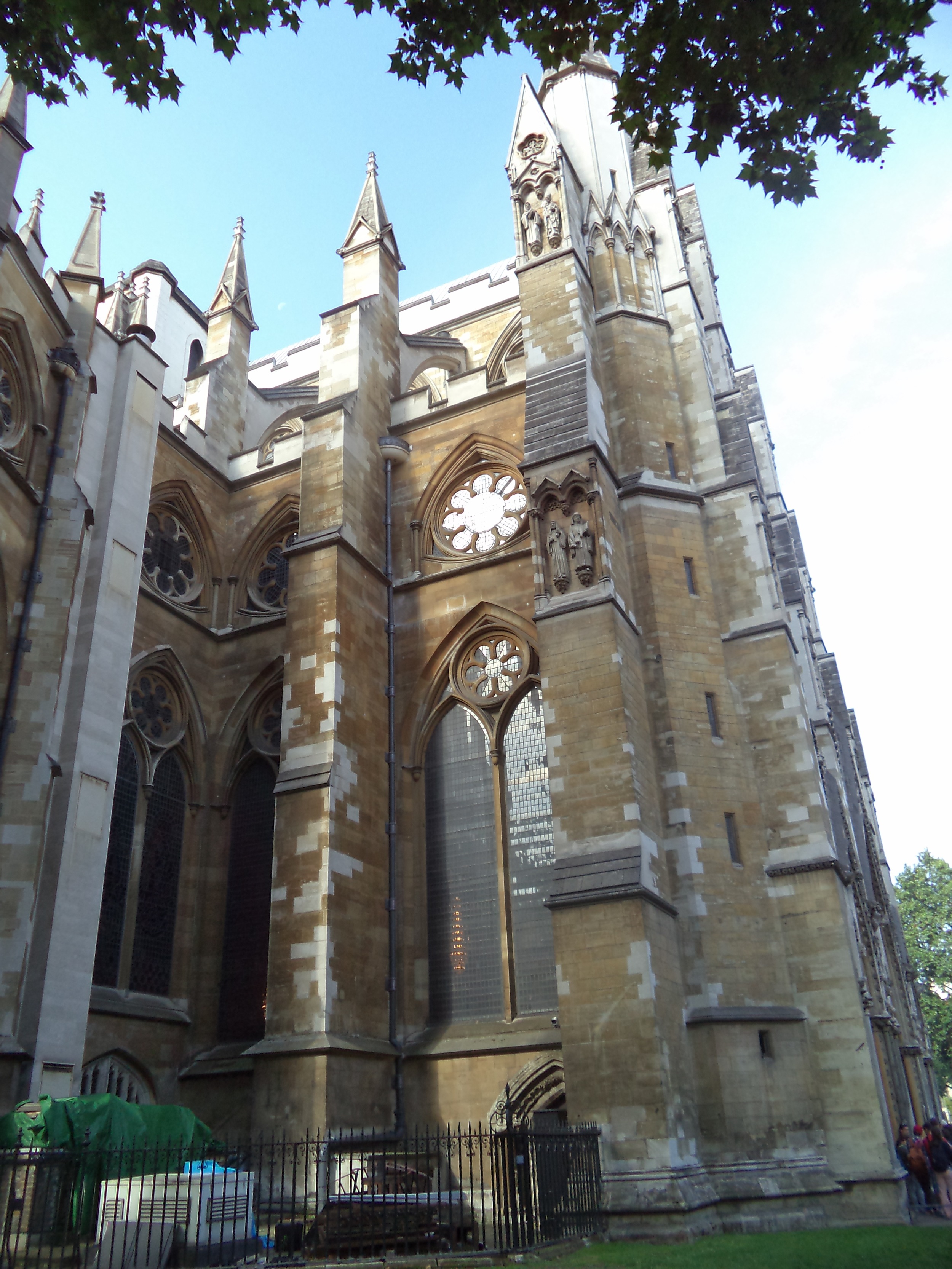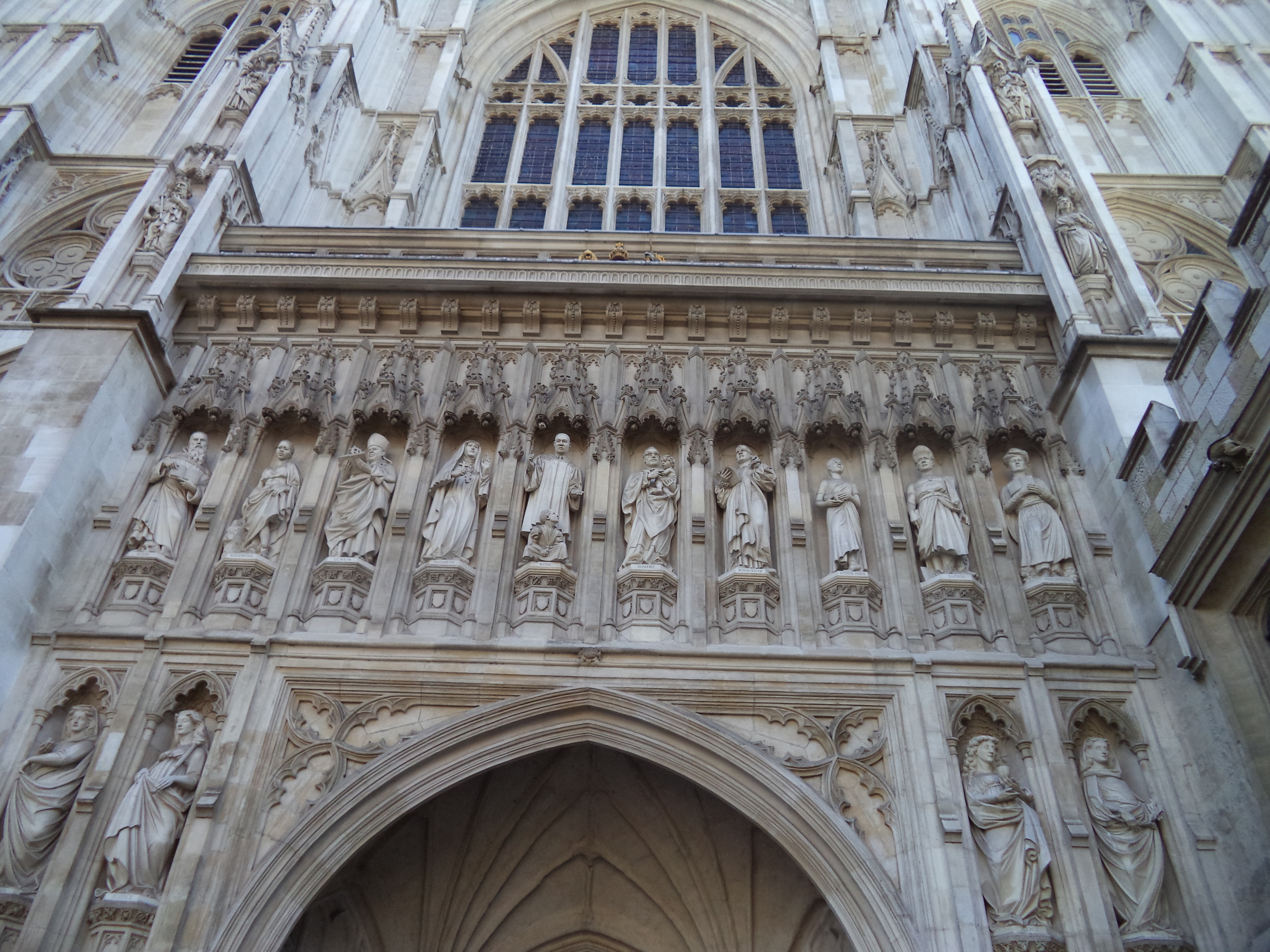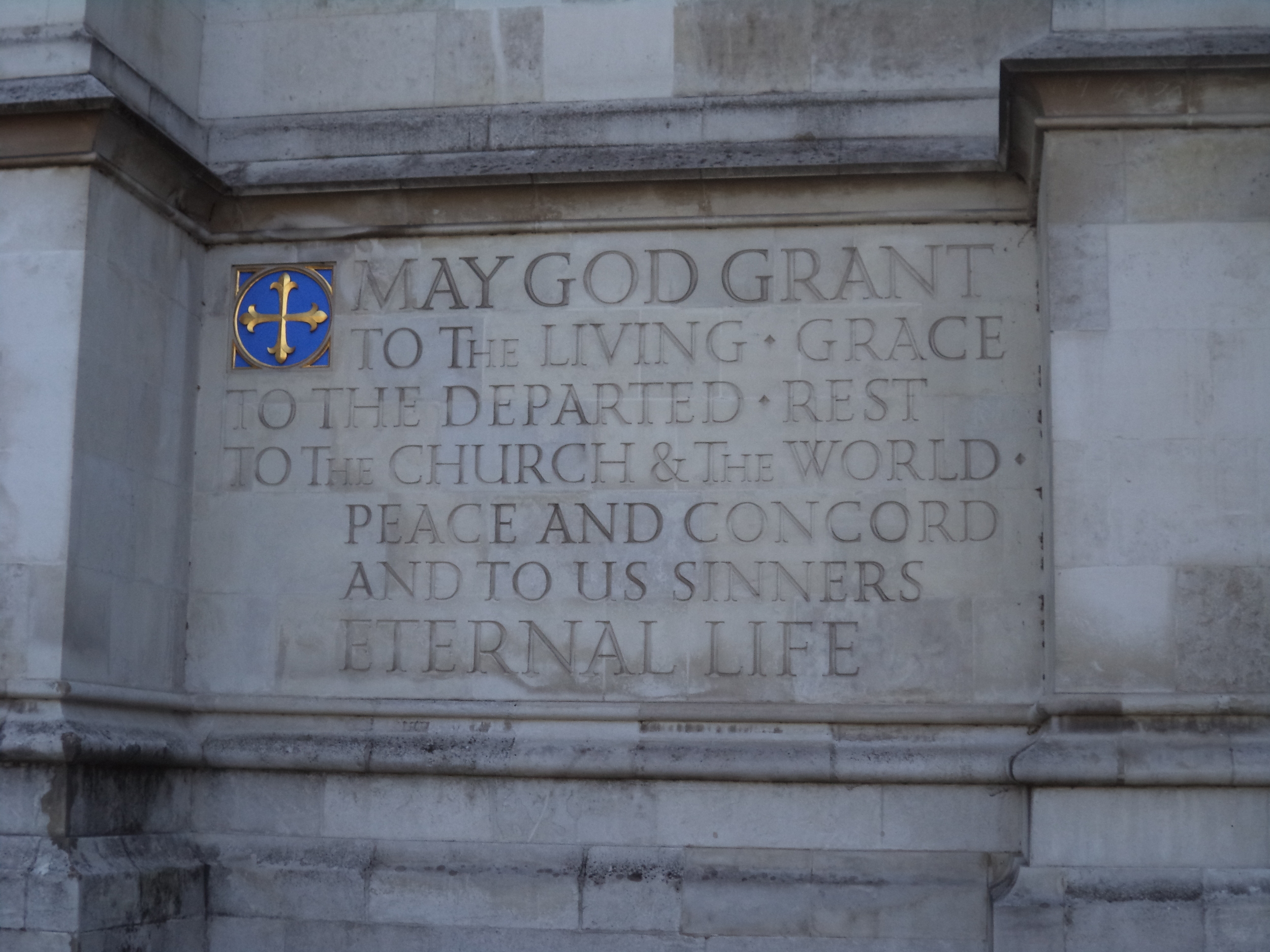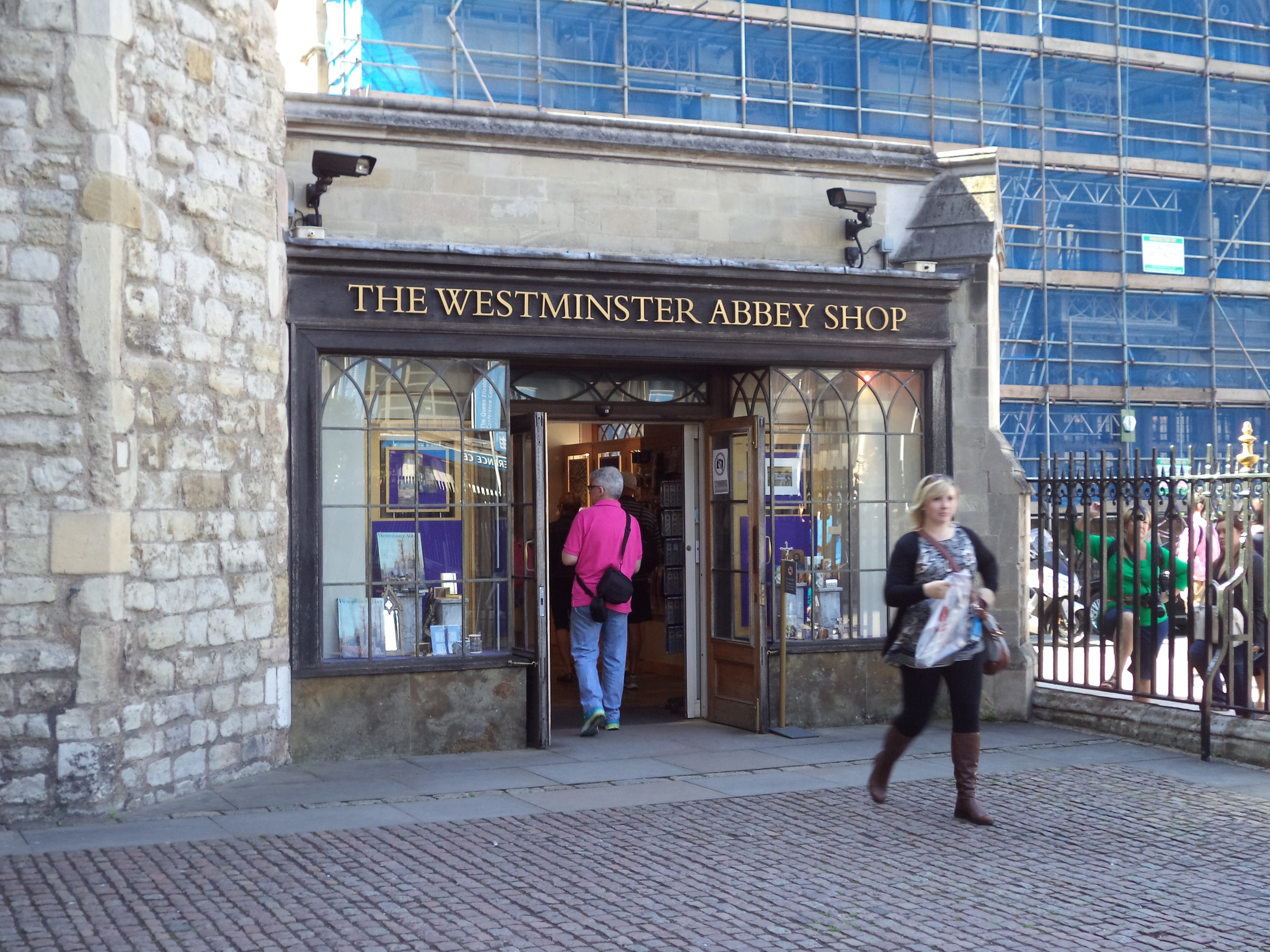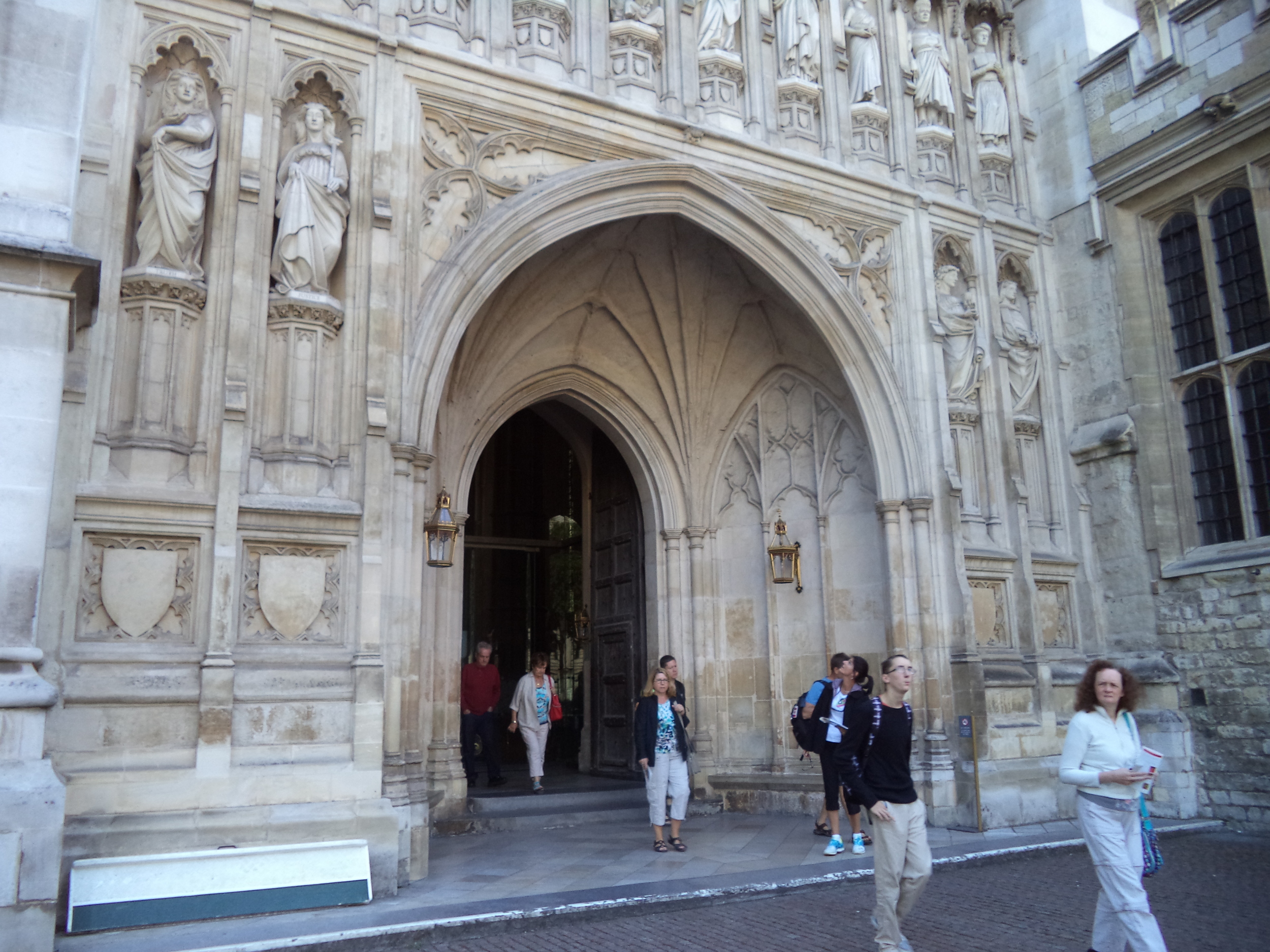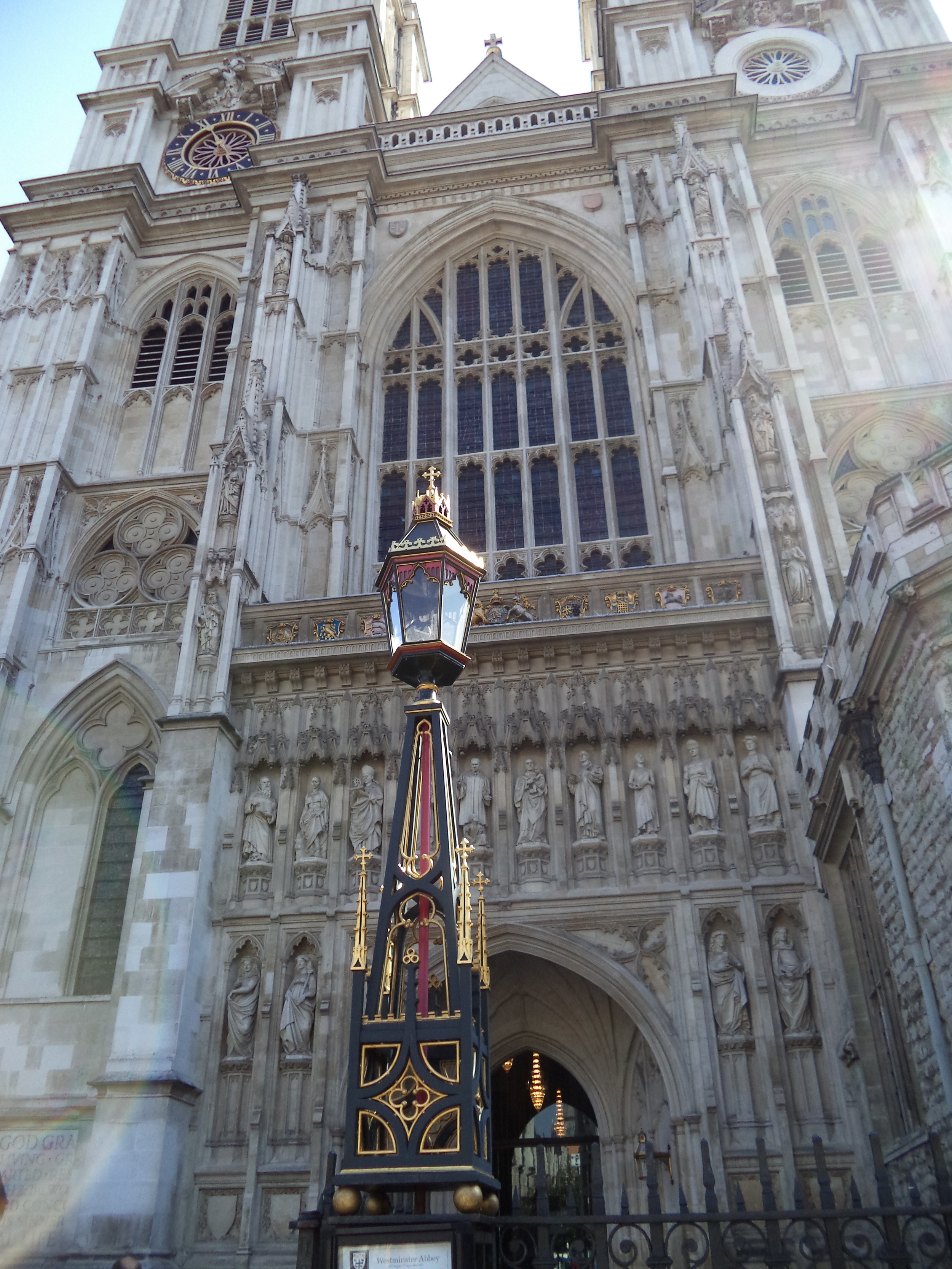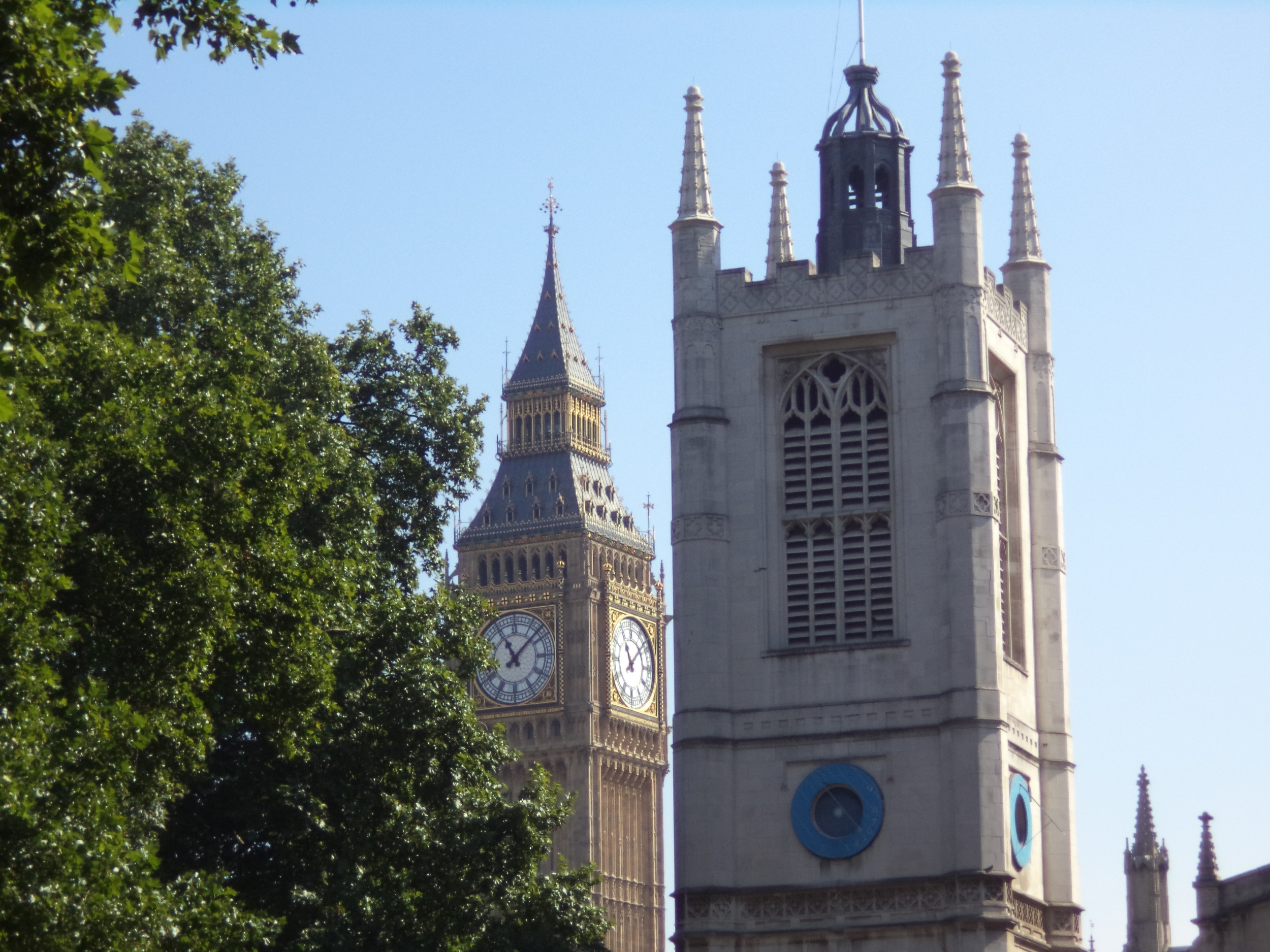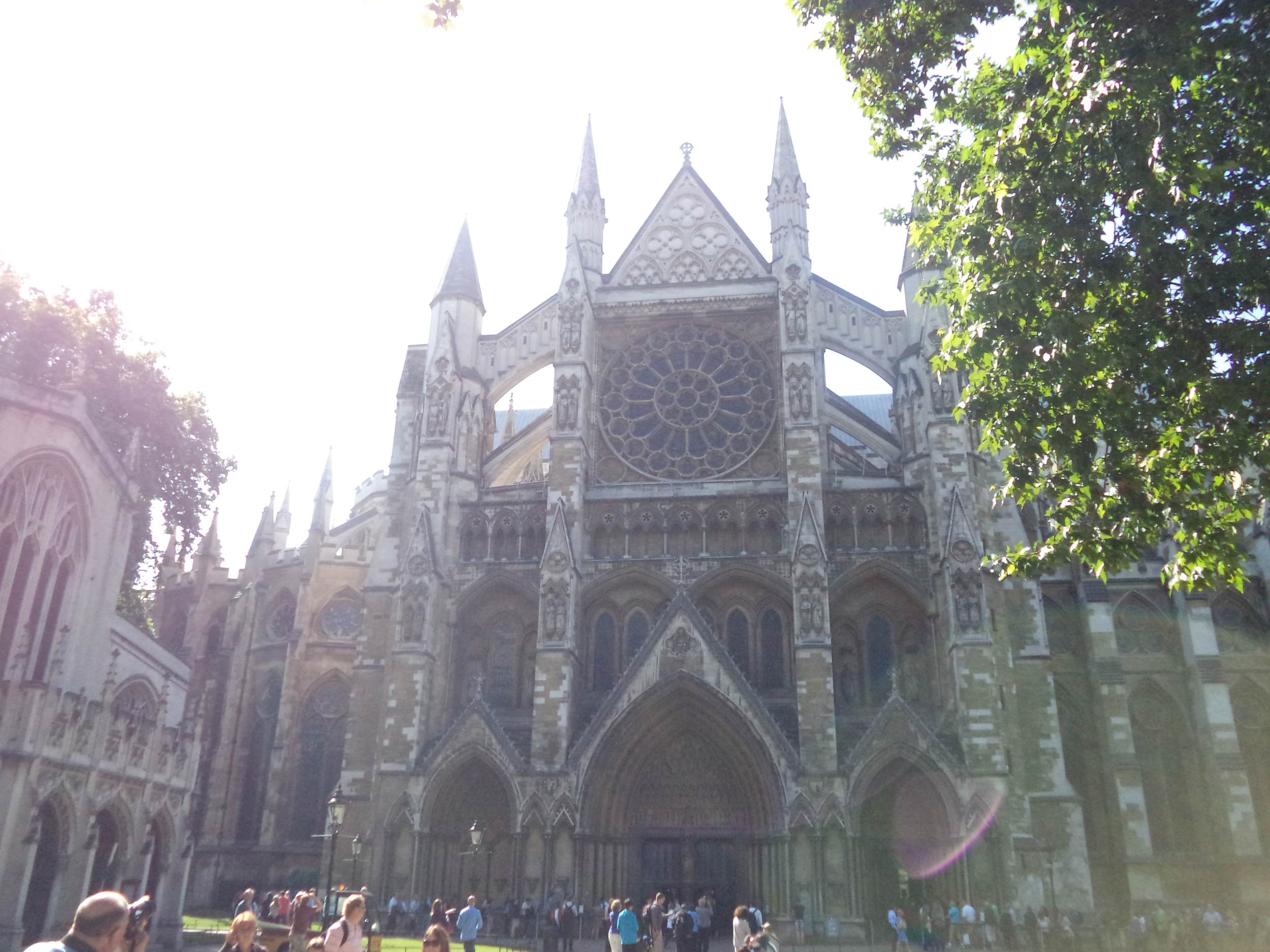Westminster Abbey was definitely one of the more famous landmark that we visited in London. We arrived early in the morning and joined a giant queue about thirty minutes prior to opening.
You need to get there at opening.
Our experience with the crowds at Westminster only got worse the longer we were there. The tour bus groups began to arrive shortly after opening and it was nearly impossible navigate the abbey. If you're claustrophobic, forget it!
As with St. Paul's Cathedral, photography was forbidden inside, so I took a bunch of snaps of the exterior. The pictures do it zero justice. Westminster Abbey is one of the most grand and opulent places that I have ever visited. It is so ornate, that it is completely overwhelming.
The entrance fee to Westminster Abbey includes an audio tour. Although you could still have an amazing experience without utilizing the tour ( Just looking around the abbey will blow your mind), you should use the audio tour, as it's filled with so much information and directs you to look at particular details in the architecture.
One warning about the audio tours... people using them seem to be very unaware of their surroundings. Westminster is so full of tourists all in their own little worlds, that it's easy to bump into people or trip on the uneven flooring. When you are listening to the audio device, try to pick a spot that is out of the way and look at the object after. It's safer and a better experience!
I was impressed with the staff at the Abbey. They were welcoming and very accessible when we had questions. Westminster is a working church and in addition to regular services, a priest leads an hourly prayer. The hourly prayer basically creates a minute pause in everyone's touring. I'm not religious, but I liked this moment for reflection and it also served as a reminder that this is not just another tourist destination.
Beyond the amazing architecture and ornate sculptures, there are a lot of famous people buried in Westminster Abbey. One of the most impressive tombs contains sisters and monarchs, Mary l and Elizabeth l. They had so much conflict in life, yet were buried in the same tomb, on top of one another. We marveled at seeing the burial spots for Charles Darwin, Isaac Newton, Geoffrey Chaucer and Charles Dickens.
There is something very confusing about Westminster Abbey that left us feeling a bit cheated. When we visited, we had no idea that some of the names on the walls were not actually where the person was buried. They look like normal tombs and come in all shapes and size, irregular, as if to mimic an actual burial spot. The people (such as the Bronte sisters, Jane Austen, Winston Churchill) were buried elsewhere, but their names are in the Abbey as a memorial tribute.
Here's the problem...
On William Shakespeare's memorial it is stated that he was not actually buried at the Abbey, but in Stratford-Upon-Avon. None of the other memorials stated that the person had been buried elsewhere. Why did they only do this for Shakespeare?
We didn't find out that people were not actually buried there until days later and it put a bit of a damper on our Westminster Abbey experience. They need to clarify this issue!
The most moving tomb at Westminster belongs to The Unknown Warrior. This is much in the same spirit as The Tomb of the Unknown Soldier in Arlington. Unlike Arlington, the tomb at Westminster is a lot more low-key, but no-less moving. More than anywhere else in the abbey, people seemed to pause for a moment and put down their audio tours in reflection and respect.
Since William the Conqueror's coronation in 1066, Westminster has been the spot for royal coronations. The most recent being the current monarch, Queen Elizabeth II in 1953. On view is the Official Coronation Chair, that has been used for most of the monarchs since 1308.
Westminster Abbey is rich with History and an awe-inspiring place. If it's not on your London touring itinerary, add it and arrive early. Allow at least two-hours for a full experience. Check out Westminster Abbey's Official Website for hours and prices.
